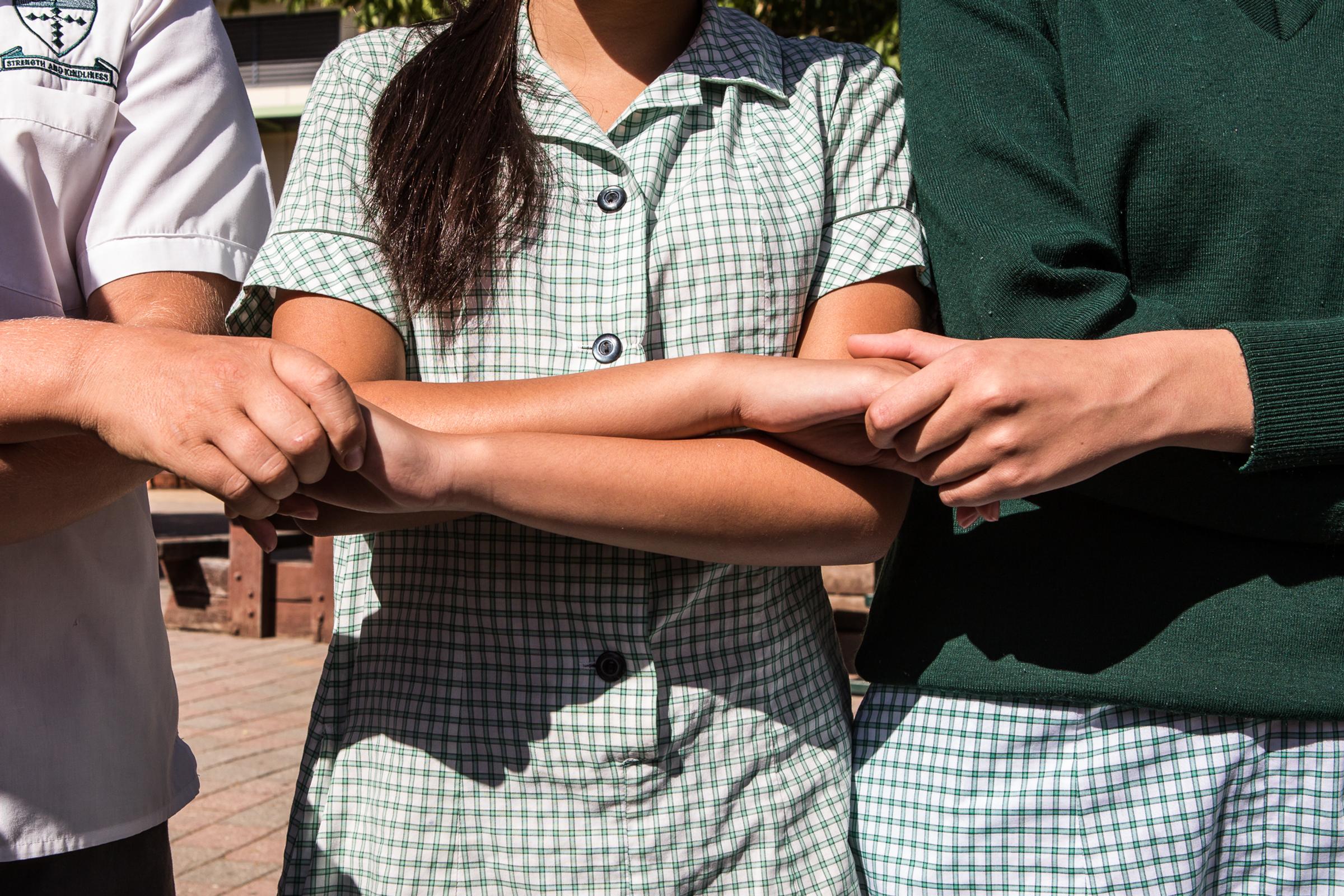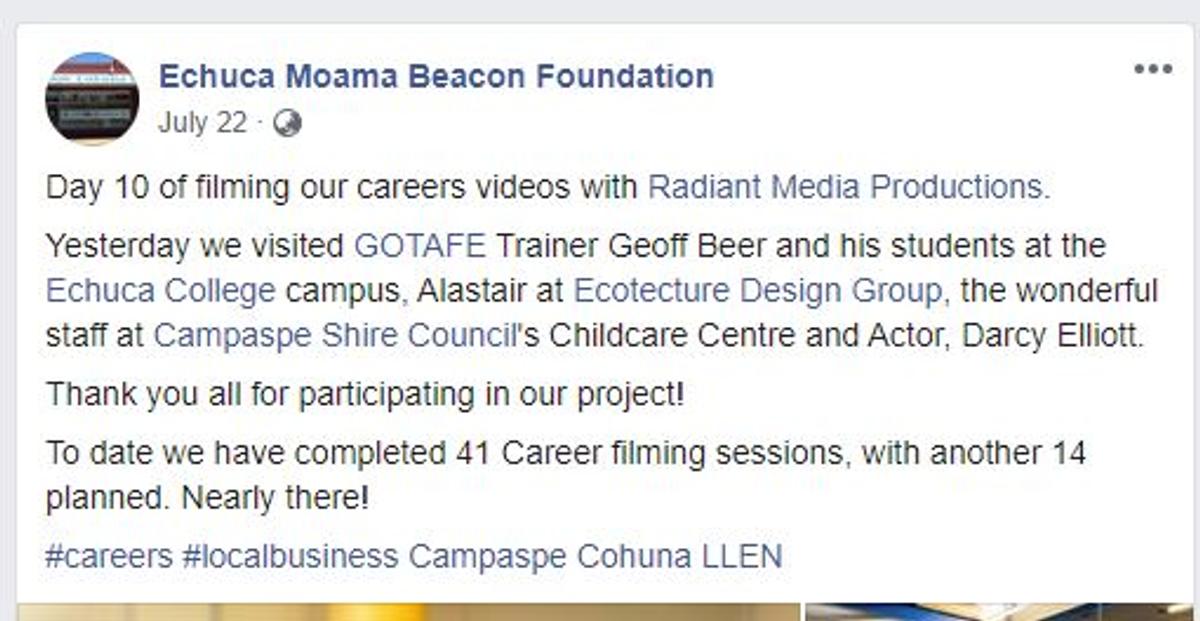Pastoral Care and Wellbeing News

As we embark on our remote learning journey for Term 3, we are aware of the many challenges and opportunities that remote learning provides. We encourage you to continue to take care of yourselves and each other as we navigate Stage 3 restrictions in our area.
Please let us know if there is anything further we can do or assist with.
We would like to remind our families and students of the importance of taking care of yourselves. We strongly encourage you to be fair and patient with yourselves and take the time to:
1. Set realistic expectations for yourself and others (aim for growth over perfection)
2. Check-in with yourself regularly (you know yourself better than anyone else)
3. Take breaks regularly (we will all need them - they help us reset and prevent burn-out)
4. Stay connected (be it with our friends, family, colleagues, hobbies, pets or even nature)
5. Limit news exposure - ensure it’s reliable (be mindful of media fatigue and misleading news)
6. Review whether your surroundings are good for you (alter what/where you can)
7. Stay active, sleep and eat well (they influence the mind and body more than you can imagine)
8. Try something new (a form of exercise, a new means of communicating, art, music, chore)
9. Try to keep a normal routine (it helps us feel a little ‘normal’ in the most unusual times)
10. Try to maintain perspective (take it all day by day - we alone cannot control the future)
Remember our work with the Resilience Project, the GEM’s of life:
G- ratitude: Amid the craziness we can remind ourselves of what we already have.
E- mpathy: Kindness is incredibly contagious. Let’s create a kindness pandemic!
M- indfulness: The past we cannot change, the future hasn’t happened yet. Don’t miss out on the ‘now’.
Teens and Social Media
Parents and guardians often feel that social media is a challenging area to discuss and manage with their children. Here is a fantastic article from the eSafety Commissioner to assist with supporting, understanding, assisting and monitoring social media for our young people. This can further help us assist them to navigate any challenging or negative situations and ensure they are using social media positively and in a beneficial way.
https://www.esafety.gov.au Tips for Social Media
Some Information regarding Bullying
School Counsellors often contend with the fall-out from bullying. Anybody who works in a school environment would appreciate that bullying can be harmful to the social emotional health of young people. The Australian Human Rights commission details negative effects of bullying, including:
- Feeling guilty like it is your fault
- Feeling hopeless and stuck like you can’t get out of the situation
- Feeling alone, like there is no one to help you
- Feeling like you don’t fit in with the cool group
- Feeling depressed and rejected by your friends and other groups of people
- Feeling unsafe and afraid
- Feeling confused and stressed out wondering what to do and why this is happening to you
- Feeling ashamed that this is happening to you
As a counsellor, I find that bullying is not always black and white and can be quite complex. During discussions held in group environments over the past four years I would estimate 90% of students involved would suggest they have experienced bullying. Approximately 70% admit to having been involved in some form of bullying of another student.
Quite often students who have received support with bullying have been the subject of “counter claims” or accusations of bullying themselves. This seems to be more common in girls, especially within friendship groups. “Relational aggression” is a term used by psychologists to describe a form of subtle yet damaging form of bullying that can have significant social/emotional impact on our young people. It often involves exclusion and “conditional friendship.”
So how do we deal with Bullying? How do we develop courageous and resilient kids who show empathy towards others?
· Identify and act in accordance with values- Young people often “react” rather than act, justifying behaviour by focussing on the actions of others. Encourage young people to understand that they are in control and responsible for their own actions, not the actions of others.
· Model positive behaviours- Promote healthy relationships by speaking positively about your own friends or family. Parents can verbally celebrate the strengths and successes of people within social groups rather than niggle at weaknesses.
· Explicitly teach kindness, compassion and empathy. These characteristics are often evident in young people and need to be encouraged to be engaged in relationships with peers.
· Carefully manage online activity- A lot of bullying occurs outside school hours in on-line forums. Kids need a break from their friendships.
· Practice Mindfulness- Encourage young people to remain calm, present and solution focussed. Thinking about negative past experiences and worrying about negative possibilities can cause young people to “catastrophise,” pre-empting the worst.
If you are needing any information, resources or assistance regarding bullying supports please contact socialworkers@sje.vic.edu.au. If you would like to discuss any specific incidents or concerns, please contact the student’s House Leader.
Some additional resources and supports
Websites
Bite Back: https://www.biteback.org.au/
Beyond Blue: https://www.beyondblue.org.au
Life Line: https://www.lifeline.org.au/ 13 11 14
Kids Help Line: https://kidshelpline.com.au/ 1800 55 1800
LOCAL FACE TO FACE DIRECT SUPPORT:
Echuca Moama and surrounds has a variety of psychologists, social workers and counsellors that provide support to community members for issues relating to mental health, relationships, anxiety, stress, mood disorders. Grief and loss, self esteem and a range of other issues. People may obtain a mental health care plan through their GP to receive a number of fee subsidised appointments.
- Thrive Wellness & Consulting Ph: 5482 3143
- N8 Health (Psychology) Ph: 5480 2981
- Echuca Primary Care Clinic (Counselling) Ph: 5485 5800
- Country Wide Psychology & Counselling Ph: 5480 0622
In the event of a mental health emergency, please contact:
- Victorian residents (Mental Health triage) 1300 363 788
- NSW residents (Access Line) 1800 011 511
Or attend your local emergency department for assessment.
APPS:
Self Help for Anxiety Management (SAM): offers a range of self-help methods to help you manage anxiety. It has been developed by psychologists and provides 25 self-help options on anxiety, relaxation and health. You are encouraged to use the resources and tools in SAM to build your own anxiety toolkit that will help you cope when you're feeling anxious.
MoodMission: helps you learn new and better ways of coping with low moods and anxiety. Tell MoodMission how you’re feeling and it will give you a tailored list of 5 Missions that can help you feel better. Missions are activities and mental health strategies that are quick, easily achievable, and backed up by scientific evidence.
Smiling Mind: is a meditation app for young people. It has been developed by a team of psychologists and uses mindfulness to boost calmness, contentment and clarity. Mindfulness meditation has been shown to help manage stress, resilience, anxiety, depression and improve general health and wellbeing.
Calm Harm: provides tasks that help you resist or manage the urge to self harm. You can add your own tasks too and it's completely private and password protected.
Headspace: is meditation made simple. The app takes you through the basics of meditation, with progress pages to track your stats and reminders to help you with your practice.
The Check-in: is for anyone who wants to check in with a friend but is concerned about saying the wrong thing or making the situation worse.
Recovery Record: can help you manage your journey to recovery from eating disorders. You can keep track of your progress, get affirmations, set personalised reminders schedules and use other self-help activities.
Breakup Shakeup: provides ideas for fun, easy things to do to help you cope after a breakup. The app teaches you that planning activities and increasing your social support will help you recover faster.
Echuca Moama Beacon Foundation
Check out Echuca Moama Beacon Foundation’s Face Book page, for the daily update’s on how filming for the 2020 alternative to the Career’s Expo is progressing.
This movie footage being produced by Radiant Media (Moama) will be offered to all students (particularly Year 9 and 10) at St Joseph's College online later in the term.
The short movies will showcase many of our local Echuca-Moama Business’s and Services.

